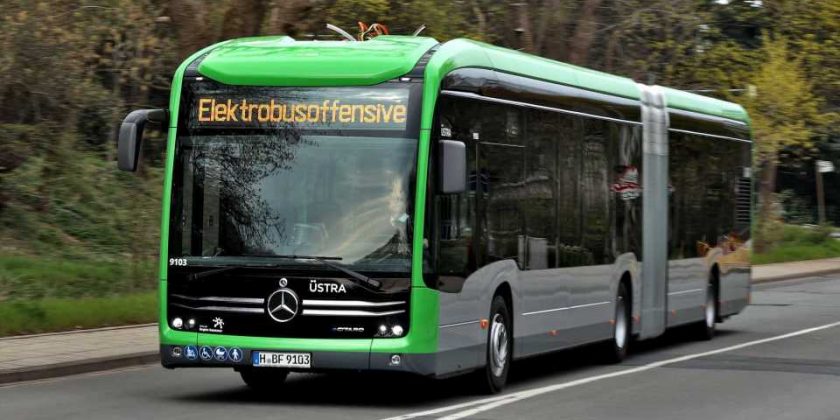The city of Stuttgart in Germany received two fully-electric Mercedes-Benz eCitaro buses, both of which were equipped with very advanced solid-state lithium-ion batteries. The eCitaro G (articulated) model (pictured below) has a current storage capacity of 441 kWh and its battery pack is actually located on the roof of the vehicle (where you would also find in most hybrid buses too).
Now one of those two eCitaros is believed to have been the source of a massive fire that destroyed 25 buses in the city and also heavily damaged part of the depot they were parked in. Apparently, one depot employee reportedly saw flames on top of one of the electric buses from Mercedes, which at the time was hooked up to a charger and drawing current from it.
The eCitaro has not yet been officially confirmed as the origin of the fire, but this eye witness account does seem to point to it as the source. An army of firefighters and emergency crews rushed to the scene and eventually got the fire under control by 10 PM, and the blaze may have been more difficult to control because of the burning electric bus that now appears to have been its source.
Gallery: Mercedes-Benz eCitaro G
eCitaros are being tested as part of bus fleets all around Europe, including in the German cities of Haover and Dusseldorf that also had fires break out in bus depots before the larger incident in Stuttgart. However, the link between the fire and electric buses in the depot has yet to be definitively made by those investigating the case.
Mercedes quotes their range as being 200 km in typical driving conditions, although the manufacturer says some 100 additional kilometers can be added if the vehicle is driven efficiently. The manufacturer also points out in the eCitaro’s launch press release that while the solid state batteries that it uses to store power do have higher energy density and durability compared to traditional lithium-ion tech, they are harder to fast-charge.
Source:heise.de
Source: Read Full Article







